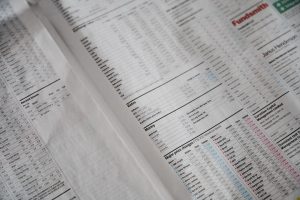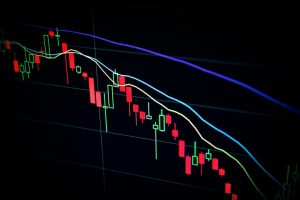Forex, or foreign exchange, is the largest financial market in the world, with an average daily trading volume of $5.3 trillion. This market involves the buying and selling of currencies from different countries, with the aim of making a profit from the fluctuations in their exchange rates. For individuals looking to invest in forex, deciding what to buy can be a daunting task. In this article, we will discuss what to buy on forex, and provide some tips to help you make the right decisions.
1. Major Currency Pairs
The most popular currency pairs to trade in forex are known as the major pairs. These include the US dollar, euro, Japanese yen, British pound, Canadian dollar, Swiss franc, and Australian dollar. These pairs offer high liquidity and are the most heavily traded, making them a good choice for beginners. They also tend to be less volatile than other pairs, which can make them a safer option for those who are risk-averse.
2. Exotic Currency Pairs
Exotic currency pairs are those that involve the currencies of emerging economies, such as the Brazilian real, Indian rupee, or South African rand. These pairs are less liquid than major pairs, which can make them more volatile and risky. However, they also offer the potential for higher returns, as the exchange rates can fluctuate significantly.
3. Cross Currency Pairs
Cross currency pairs involve currencies that are not the US dollar, such as the euro/yen or pound/yen. These pairs can offer a good opportunity for diversification, as they are not tied to the fluctuations of the US dollar. However, they are also less liquid than major pairs, which can make them more volatile.
4. Commodity Currencies
Commodity currencies are those that are tied to the prices of commodities such as oil, gold, or silver. These currencies include the Canadian dollar, Australian dollar, and New Zealand dollar. As commodity prices rise and fall, so do the exchange rates of these currencies. For investors who understand the commodities market, these currencies can offer a good opportunity to profit from their fluctuations.
5. Safe Haven Currencies
Safe haven currencies are those that are considered to be a safe investment during times of economic uncertainty. These include the US dollar, Swiss franc, and Japanese yen. During times of crisis or volatility in the markets, investors tend to flock to these safe havens, which can cause their exchange rates to rise. For investors looking to protect their capital, these currencies can be a good choice.
Tips for Choosing What to Buy on Forex
1. Understand the market
Before investing in forex, it is important to have a good understanding of the market and the factors that drive currency prices. This includes economic indicators, political events, and global news. Staying up-to-date with the latest news and trends can help you make informed decisions about what to buy.
2. Choose a reputable broker
Choosing a reputable broker is crucial for success in forex. Look for a broker that is regulated by a reputable financial authority, has a good reputation in the industry, and offers competitive spreads and fees.
3. Use risk management strategies
Forex trading involves risk, and it is important to use risk management strategies to protect your capital. These include setting stop-loss orders, limiting your leverage, and diversifying your portfolio.
4. Start small
When starting out in forex, it is important to start small and not invest more than you can afford to lose. This will allow you to gain experience and confidence in the market without risking too much capital.
In conclusion, there are many options for what to buy on forex, from major currency pairs to exotic currencies, commodity currencies, and safe haven currencies. Understanding the market, choosing a reputable broker, using risk management strategies, and starting small can all help you make the right decisions and achieve success in forex trading.





